Hi, my name is Janet Reuben Okon. I am a Writer, Inspirational, Lifestyle, Health & Wellness Blogger and Human Anatomist. Mental Health is a very dear topic to me, not only because I am a Nigerian, or I grew up in a Nigerian home, or I aspire to become a psychologist but as a result of my desire to experience the best of life in relationship, friendship, career, finance and education. Most importantly, it is in conversations like this that we get to discover more about ourselves and live a healthier and happier life.
This week, I will be your health and wellness blogger and educator and we will discuss on the role of vulnerability in mental health.
Happy mental health awareness month! 🥳🥳🥳


Mental Health Awareness Month is an annual observance founded by Mental Health America in 1949 to highlight the importance of mental wellbeing, educate the public, reduce the stigma, celebrate recovery and promote support for those affected by mental health conditions.
The Mental Health Month ribbon is green, symbolizing hope, strength and emotional support for those affected by mental health conditions.

THE IMPORTANCE OF MENTAL HEALTH AWARENESS MONTH:
🎉 Mental health awareness is an important initiative to improve understanding of mental health conditions and increase access to healthcare for those who need it.
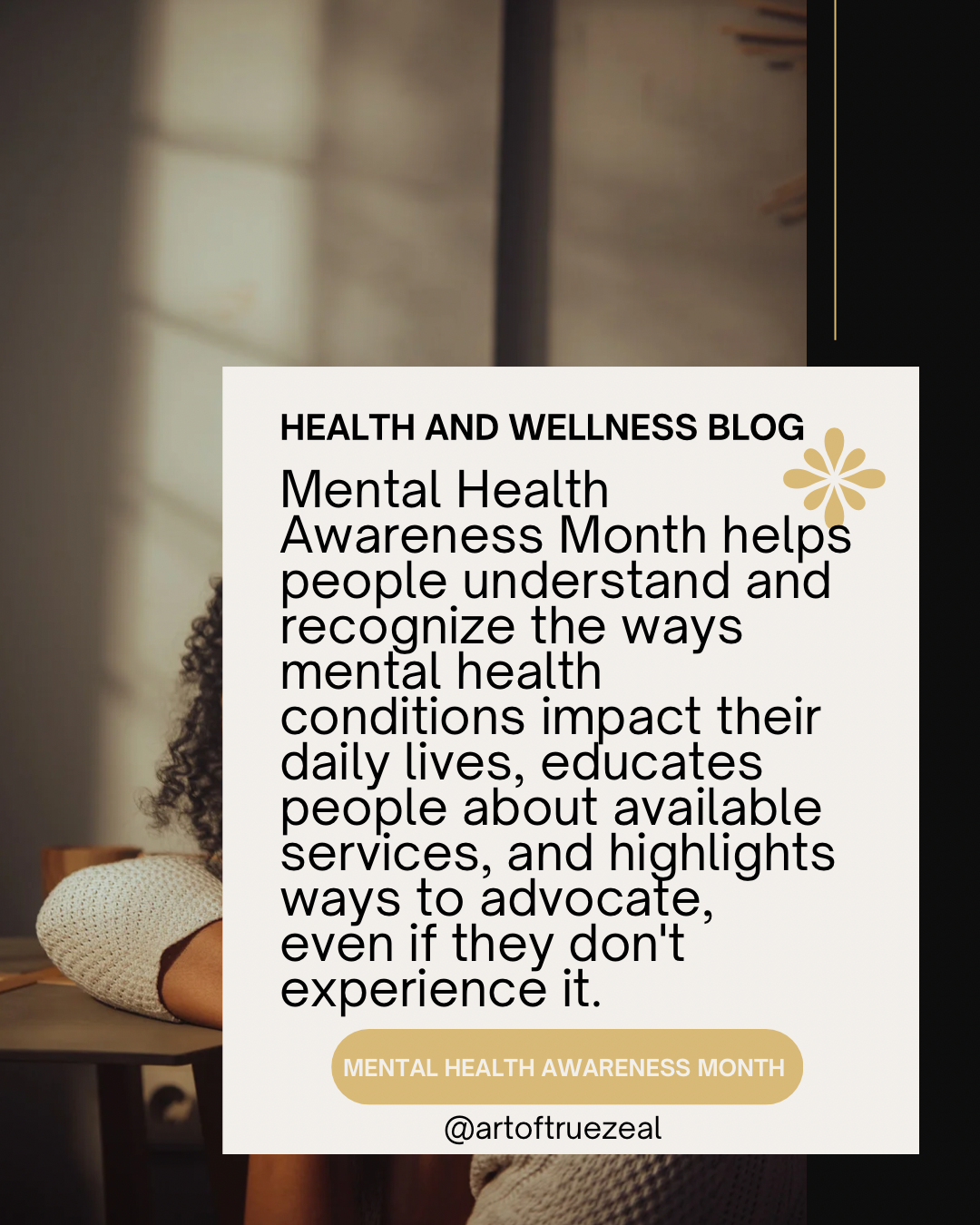
🎊When people are better educated on these conditions, they can better support and help someone to deal with a mental health issue.
🎉Mental Health Awareness Month also provides an opportunity for fundraising, outreach, and awareness events. This, in turn, can help support research, fund treatment options, and connect advocates to create a brighter, more promising future of mental health care.

HOW WE CAN END THE STIGMATIZATION TOWARDS MENTAL HEALTH:
🌟Recognition and Education: are important ways to remove the stigma associated with mental health condition.
🌟Mental Health Awareness Month creates a time and space to start a conversation. Talking openly about mental health can reduce the misconceptions and stigma, and can encourage those who are suffering to seek help and find a support network.
🌟 Let’s continue to raise the awareness of mental health.
HOW TO RAISE THE AWARENESS OF MENTAL HEALTH:
🎊If there is someone in your life struggling with their mental health, one of the best things you can do is to reach out and start a conversation.
🎉Educate yourself on the realities of living with mental health issues and confront any feeling of stigma or judgment you may have. It could change stereotypes, change people’s misunderstanding on Mental Health.
🎊Show empathy to those families dealing with mental health condition.
🎉Just supporting those in your life with a mental health condition can spread the message of awareness and acceptance.

We can’t discuss Mental Health without vulnerability. This is why I published this article on vulnerability in mental health awareness month.
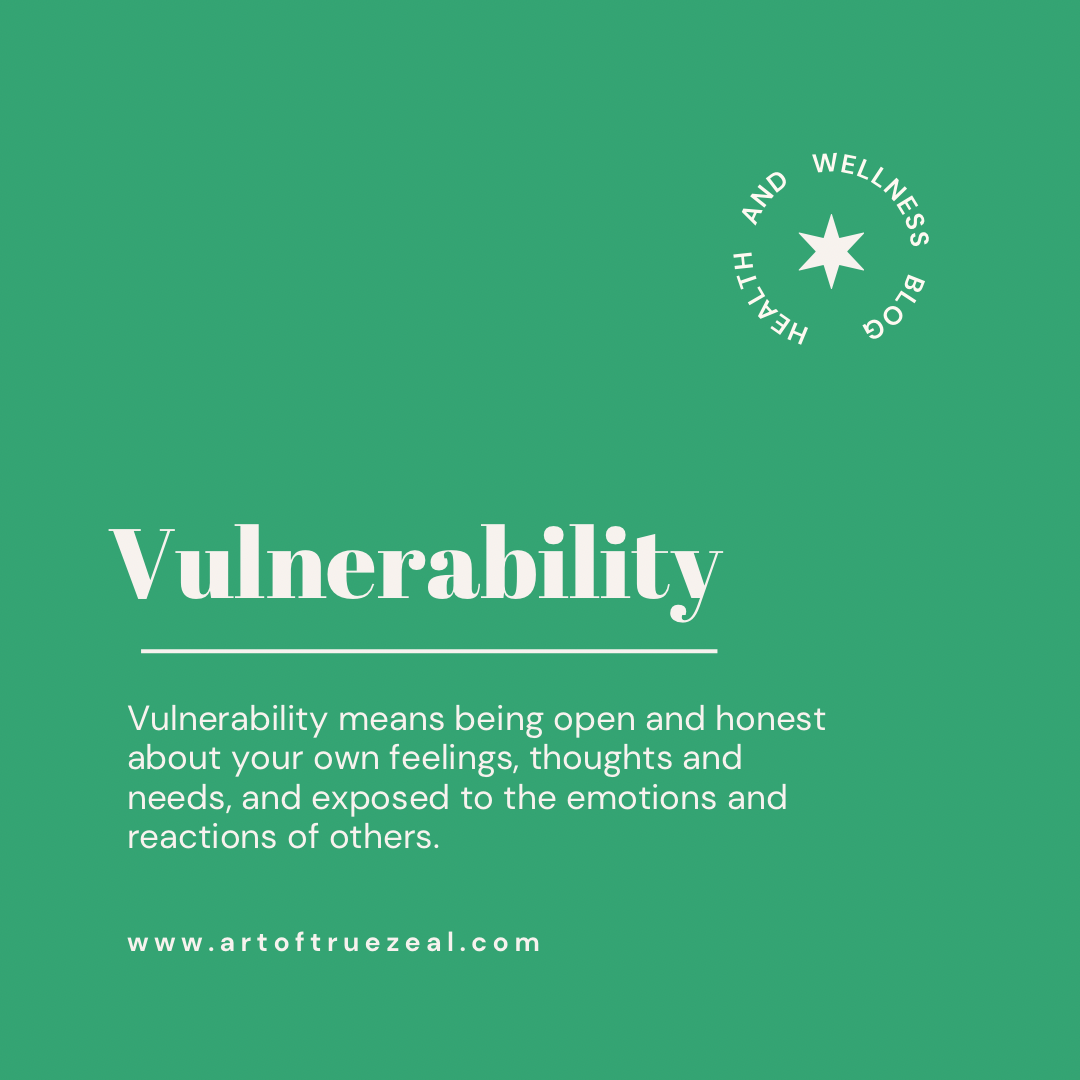
There are four types of vulnerability:
Social, Physical, Emotional and Environmental Vulnerability.
For this blog post, we will focus on Emotional Vulnerability.
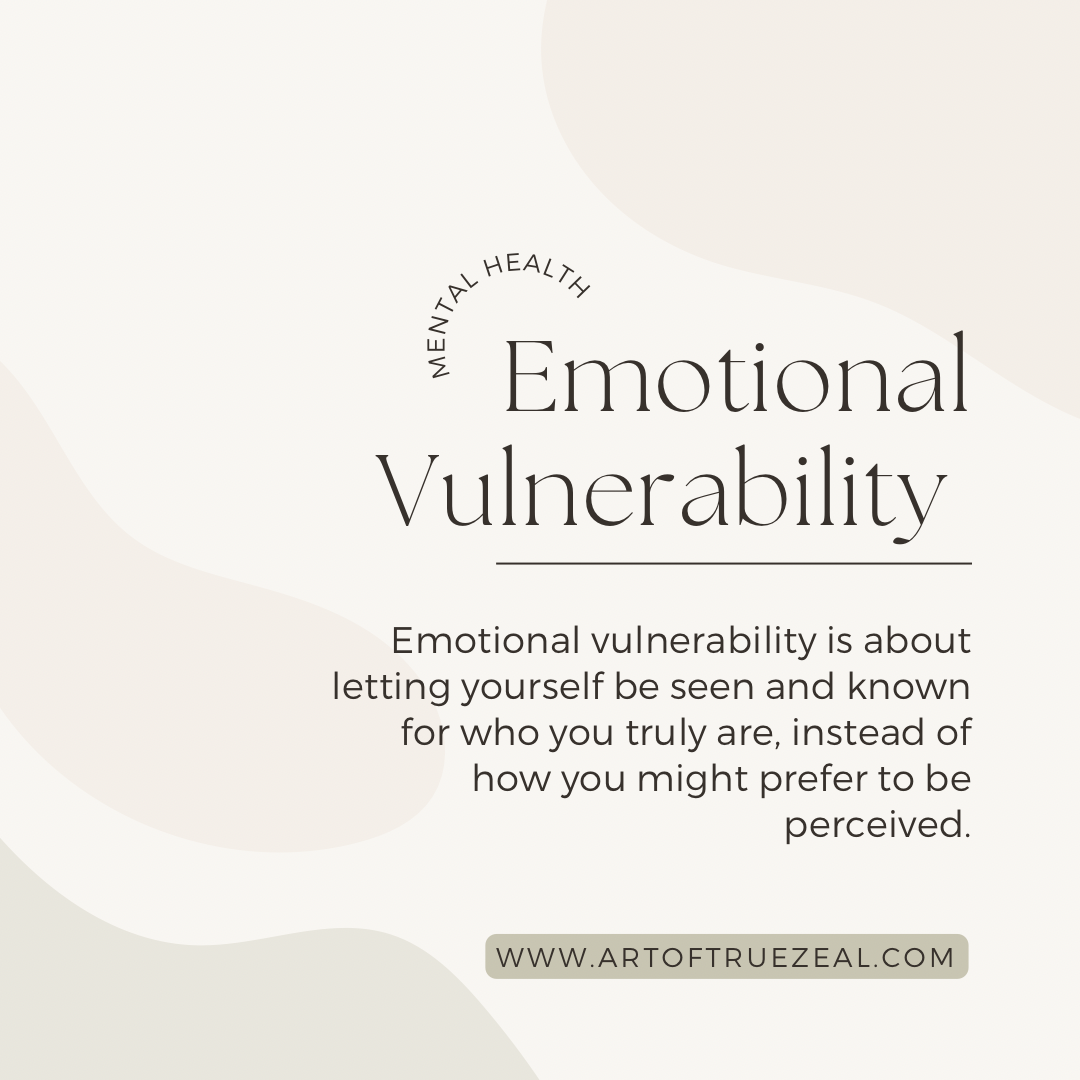
If you feel uncomfortable about the idea of being vulnerable, YOU ARE NOT ALONE.
The following myths could make it difficult for people to be vulnerable:
🌟Vulnerability is a sign of weakness: To be vulnerable, you need to be able to be honest with yourself and others, and be open to new experiences. For these reasons, vulnerability actually takes a great deal of courage and strength.
🌟Being vulnerable means exposing all of your secrets: Vulnerability is about sharing the right information with the right person.
🌟People will take advantage of your vulnerability: Being vulnerable is not an invitation for people to take advantage of you. It’s about building trust, healthy relationships and connecting with others on a stronger level while reinforcing your boundaries.
🌟Vulnerability is only necessary with a partner: You’ll discover the benefits of being vulnerable in all types of relationships, not just romantic ones. It can lead to deeper connections and understanding in friendships, family relationships and even professional relationships.
🌟Vulnerable people are emotionally unstable: Being vulnerable doesn’t mean you don’t have a hold on your emotions. It means you’re open and honest about your emotions in times that matter, allowing yourself to be fully understood. Vulnerability is often a sign of emotional intelligence and increased self-awareness.
🌟Men shouldn’t be vulnerable: Most men struggle with vulnerability due to the belief that they should be strong, stoic and self-reliant. These beliefs can lead men to feel isolated and unsupported. It’s important for men to challenge their own and others’ expectations, express emotions in a helpful way and find healthy role models. Therapy can be a helpful way to learn how to trust, and express emotions in a healthy way to a non-judgemental professional.
DIFFICULTIES OF BEING VULNERABLE:
Why is it sometimes difficult to be vulnerable?
Being emotionally vulnerable can feel scary for some people. It means opening up to others and sharing personal thoughts, feelings and experiences that may be painful to expose. It can also put you in a position where you feel you can get hurt.
There are several barriers that can make it difficult to be vulnerable. Some of the most common include:
✨Fear of rejection
✨Fear of judgment
✨Lack of trust
✨Past trauma
✨A belief that vulnerability is a sign of weakness.
✨Societal pressure to live up to a certain image or to be self-sufficient. It’s completely normal if you find it difficult to be vulnerable or feel like it just doesn’t suit you. Feeling vulnerable naturally triggers our anxiety response and our fight or flight survival mode, making us avoid feeling vulnerable because we see it as a threat.
HOW DO I KNOW THE RIGHT TIME TO BE VULNERABLE?
🌟 Through Discernment: According to 1 kings 3:12a; the Holy Spirit helps us to discern who to be vulnerable with, how and what to say and when to speak. The first step is to pray for the spirit of discernment daily.
🌟It’s important to trust your instincts when you decide to share personal things with others.
🌟It’s generally best to be vulnerable with someone you trust – someone who has shown they can be supportive and understanding.
🌟It’s also important to consider the context and the level of vulnerability you’re comfortable with.
🌟Know your boundaries and think about the environment you’re in. Does it feel like the right time and place to share? Remember to take the time to reflect on your own feelings and needs before sharing with others. If it doesn’t feel right to talk to people you know, talking to a therapist can help.

🌟 Research has shown that bottling up thoughts and feelings is associated with higher levels of physical and mental health problems. Being vulnerable can have a really positive impact on mental health because when we open up, we can find a sense of relief and release.
🌟It can also help reduce the stigma surrounding mental health struggles and encourage others to seek help, providing a sense of community, understanding, hope and support for those who are going through similar experiences.
🌟Vulnerability allows us to connect with others on a deeper level and can help us to feel less alone. It can also lead to developing healthier relationships, better awareness of yourself and others, which in turn can significantly improve your overall wellbeing.
🌟It makes us live a grateful, happier and fulfilling life.
A key part of who I am today is as a result of vulnerability. When I was a child, I was very expressive about how I felt. I would express myself through singing, dancing and writing. When I became a teenager, I bottled up how I felt, which was a very difficult change for me. When I clocked adulthood, through prayers, social media and the people God blessed me with, I started expressing myself again by writing, blogging and sending the longest voicenotes 😭. Art of True Zeal Blog exists because of how honest and open I am about my experiences. When I write and publish an article about my personal experience, I smile heavily because it makes me refreshed, happy, fulfilled and grateful for life and stay true to who I am. This is the role of vulnerability in mental health.
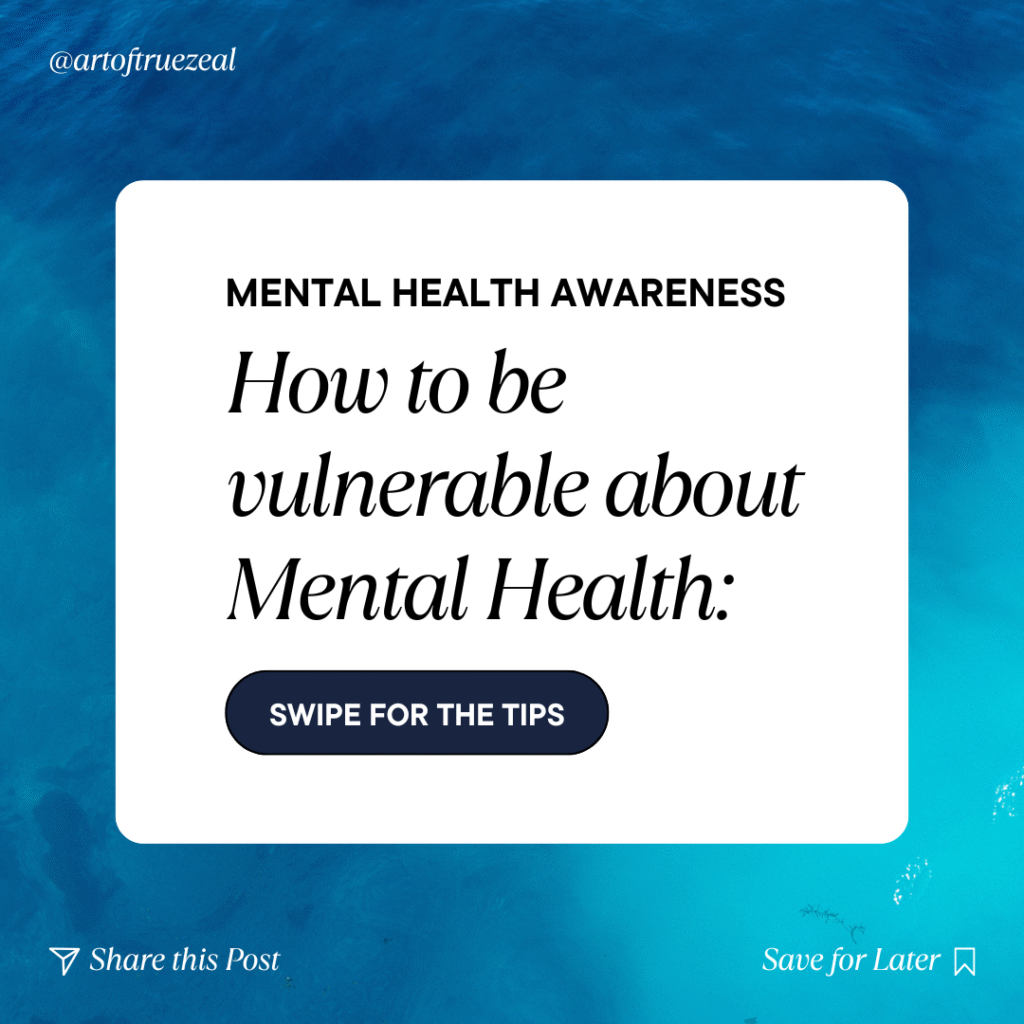
🎉Practice self-awareness: Take some time to reflect on your feelings. Try to understand why you feel the way you do and how you react to different situations. This will help you become more in tune with your own emotions, which will make it easier to share them with others. Journaling is a great way to become more self-aware. If you track how you feel, you can improve your mood by recognizing triggers and learning better ways to manage them. It makes you identify negative patterns and develop positive self-talk and behaviours in response to challenges.

🎊 Communicate openly and honestly: Share what’s on your mind with people you trust, even if things are difficult to express. Talking honestly allows you to:
🌟Have new experiences.
🌟Feel less lonely.
🌟Better understand your problems.
🌟Learn and develop more helpful ways of dealing with difficult feelings.
This communication can help you focus your energy and attention on living your life more meaningfully.
🎉Learn to accept vulnerability: It’s normal to feel instantly vulnerable when you share. Try to accept this feeling and not let it hold you back from opening up to others, chances are they’ll be happy you’ve told them, and it could even help them share more with you, creating a deeper connection.
🎊Practice active listening: When someone is sharing something personal with you, try to give them your full attention and listen. Reflect on what they are saying and ask questions to understand their perspective better. Refrain from giving them advice and suggestions and try to put yourself in their shoes.
🎉Embrace your authenticity: Being true to yourself is important when being emotionally vulnerable. Try not to be someone you’re not, or hide your true feelings to please others. Embrace your unique perspective and express yourself authentically.
🎊 Take small steps: Vulnerability can be overwhelming, so if you’re not feeling super comfortable with it, start small. Share at your own pace, take things slowly, see how the person responds, and gradually share more as you grow to trust their response. When you become more comfortable with vulnerability, you can take bigger steps.
🎉Talk to a therapist: It may feel hard to find the right time and place in your life to be vulnerable. If you’re feeling unsure about how to approach it, don’t hesitate to get support from a therapist. They can provide guidance and tools to help you navigate your emotions and communicate effectively with others.
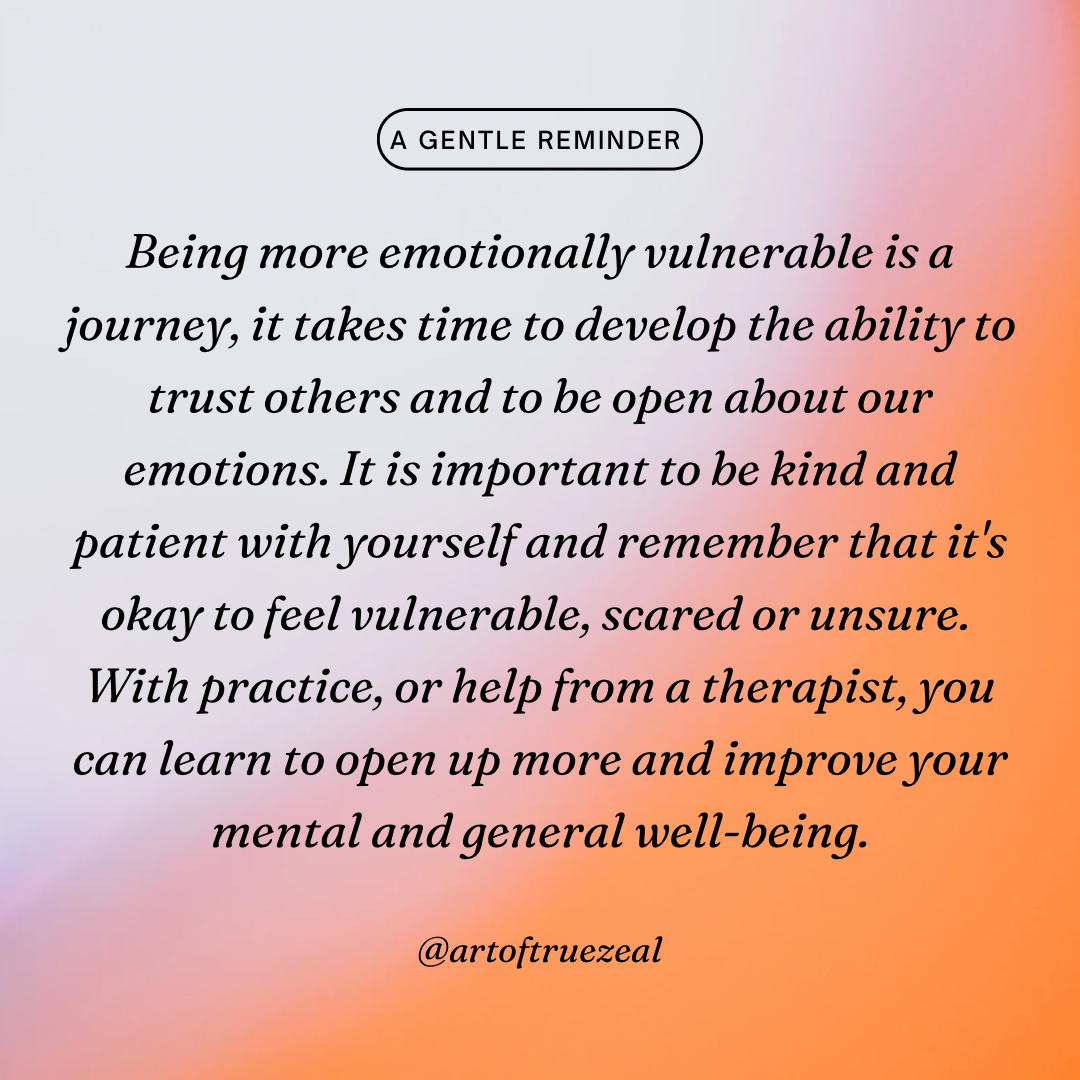
🎊 Share this post with your parents, siblings, niece, nephew, cousin, aunt, uncle, grandparents, friends, colleagues and neighbour.
🎉 Share your story: Do you know anyone who finds it difficult to open up about their mental health? Let’s break the stigma around vulnerability and mental health. Please share your story below and let’s keep the conversation going. Thank you.
”Behold, I give you a wise and discerning mind.” ~1 Kings 3:12a
SOURCES:
🎉Brown Health University
🎊Silva Mirand, Consultant Psychologist and Clinical Lead for Mental Health at Livi, United Kingdom.
Happy Publication Friday, My Artoftruezeal Family, It’s Mental Health Awareness Month 🥳 what’s your thought on vulnerability and mental health? I’ll like to know your thoughts 🤗💕
Let’s stay connected:
Join our community on Instagram: artoftruezeal
Janet Reuben on social media:
Instagram: janet.r.o
Twitter: janetreubeno
LinkedIn: Janet Reuben
Build with us: okonjanetreuben@gmail.com
Have you viewed our previous blog post?
Here’s the link:
VIEW NEXT: